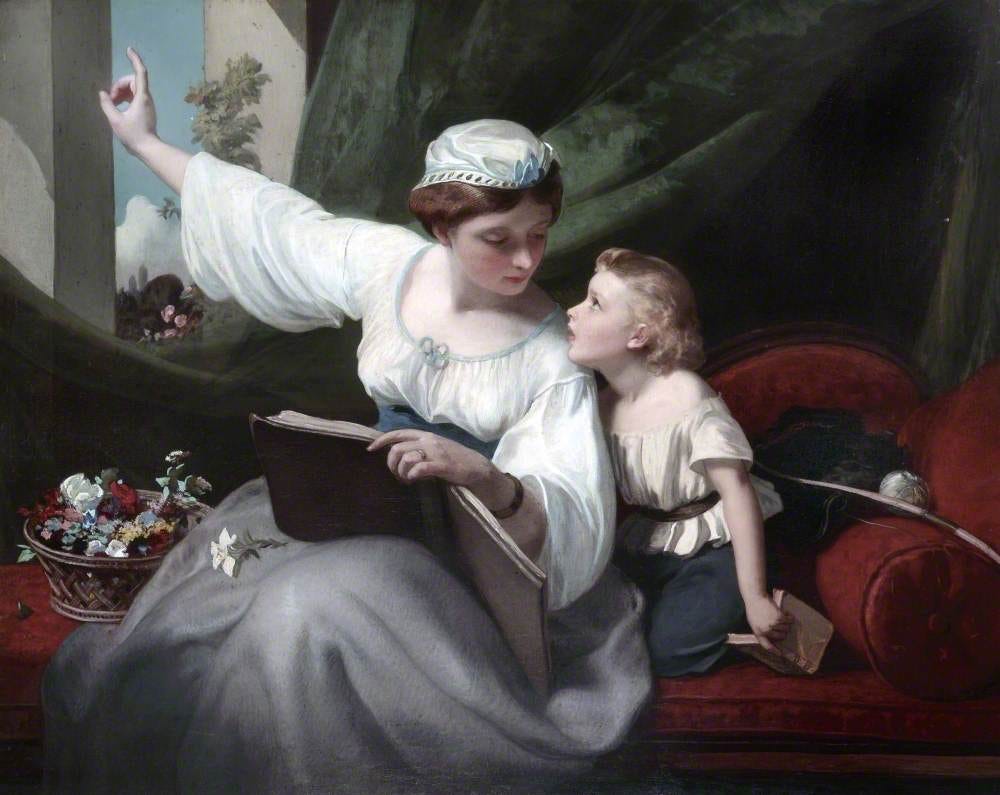A long time ago, I met a professor who taught young women to hate fairy tales. She had a course in just that, and she wanted permission to list it under our English department’s offerings too. She said, with breathless enthusiasm, that just when she thought that fairy tales were dead, out would come The Little Mermaid or something like that, and then for her, I guess, it was heigh-ho, heigh-ho, it’s off to work she’d go. I opposed her on the grounds that if you really can’t stand, say, the poetry of John Dryden, you should let somebody who loves it teach it instead.
But I should have said, “What have you got against Zulus?” Or, “What have you got against the Maori?” For fairy tales or folk tales generally are the universal heritage of mankind. Everywhere you go, you meet the mage, the warrior, the beautiful maiden, the ogre, the witch, the father-king, the good and holy mother — these are as natural to us as is our sense of time and place. That is why a child in Germany can hear and delight in the Chinese folk tale of the Five Brothers, one who can swallow the sea, one who has an unbreakable neck, and so on, and how they help each other trick a cruel king; and a child in China can hear and delight in the German tale of Cinderella and her wicked stepmother and stepsisters, and how she got the better of them in the end, just by her being good and kind and beautiful.
The two men we’ve all heard of who compiled the German fairy tales, Wilhelm and Jacob Grimm, were also great historians of language. From Jacob Grimm we get Grimm’s Law, which tells what happened to certain consonants when the German branch split off from the trunk, that is, from our ancient parent language (Indo-European). I will describe that law someday — if y’all are eager to learn about it! I think it’s a lot of fun, but I have odd tastes for such things, I know. Anyhow, the word fairy comes from Latin fata, the fates, meaning those who have spoken, because when the Fates say it, it happens, and that’s that. The Latin word comes from the ancient root bha-, meaning to speak, to decree. We have a lot of descendants everywhere. For example, Greek phone, a sound that a human being or an animal makes. For another example, English neFARious from Latin nefas, meaning something unspeakable, something so bad it would give you the chills to utter it, like putting mustard on watermelon.
Now, one of the things Grimm’s Law says is that Indo-European bh (Latin f, Greek ph) became Germanic b, so that if we want a Germanic cousin of fata, what has been said or decreed, we might look for a word beginning with b. So here’s one. When you want to get married in a church, news of it has to be spoken from the pulpit in advance, in case, well, there’s a problem, such as that you already are married and you’ve locked your wife up in a tower or something, with a dragon on guard. You have to declare the banns. And yes, it is the same word as ban, to make another kind of decree, forbidding something — which is what the professor would have loved to do to the fairy tale.
Word & Song by Anthony Esolen is an online magazine devoted to reclaiming the good, the beautiful, and the true. We publish six essays each week, on words, classic hymns, poems, films, and popular songs, as well a weekly podcast for paid subscribers, alternately Poetry Aloud or Anthony Esolen Speaks. Paid subscribers also receive audio-enhanced posts and on-demand access to our full archive, and may add their comments to our posts and discussions. To support this project, please join us as a free or paid subscriber. We value all of our subscribers, and we thank you for reading Word and Song!
Listen to this episode with a 7-day free trial
Subscribe to Word & Song by Anthony Esolen to listen to this post and get 7 days of free access to the full post archives.














